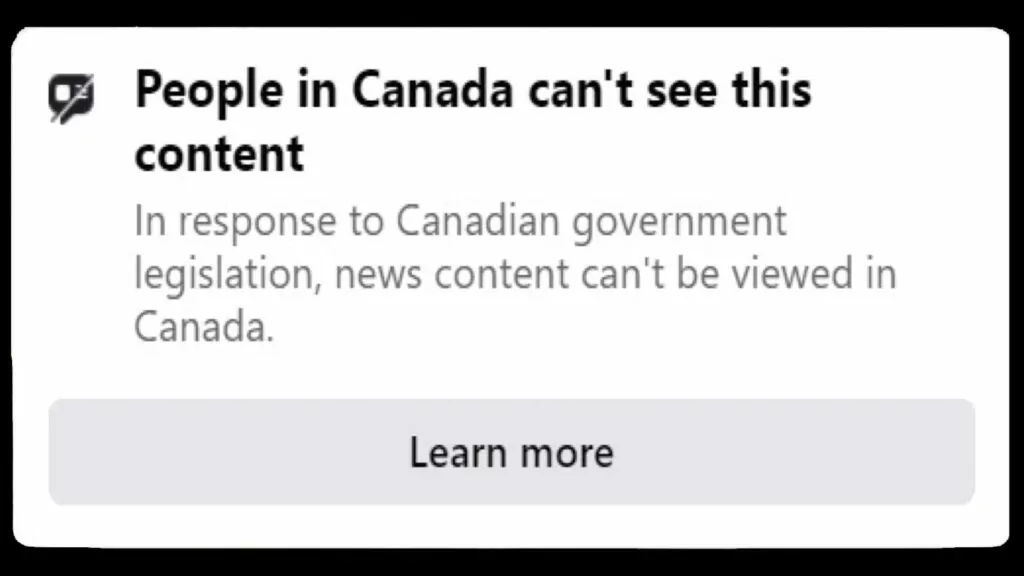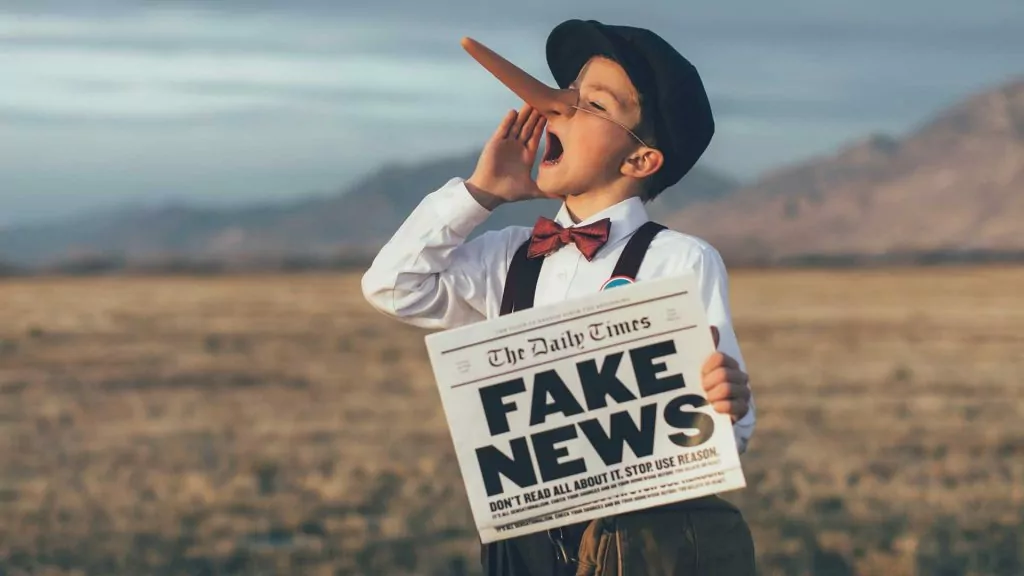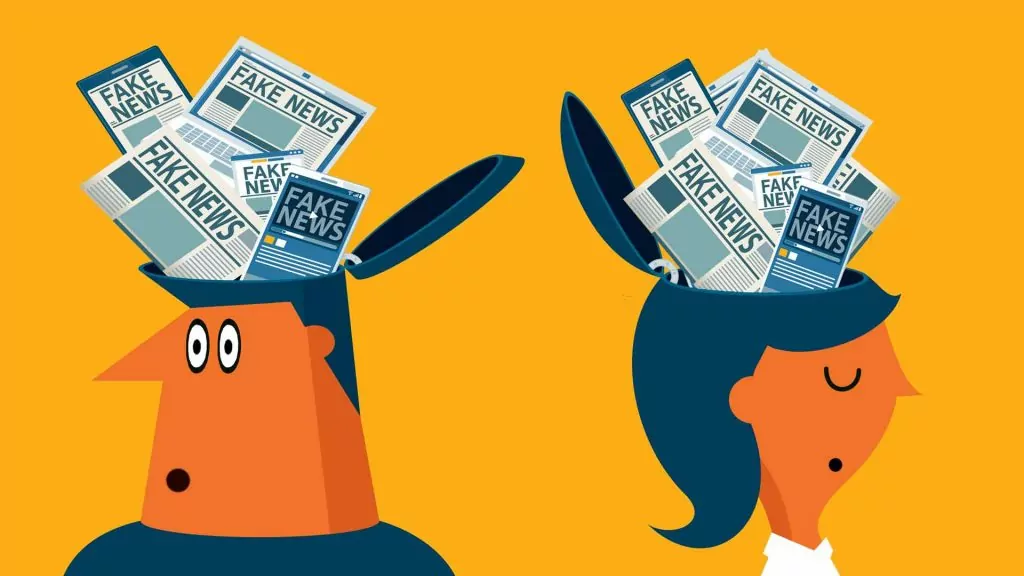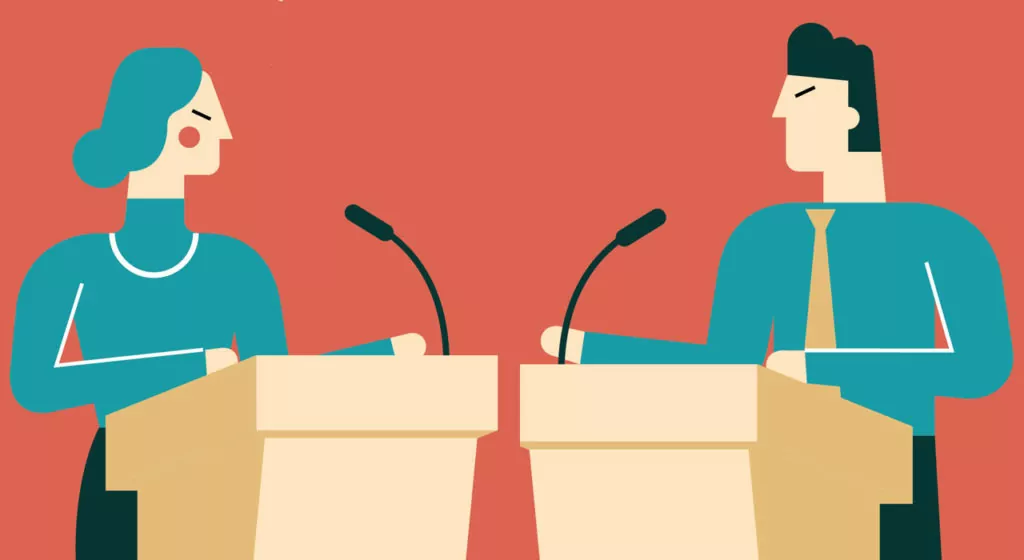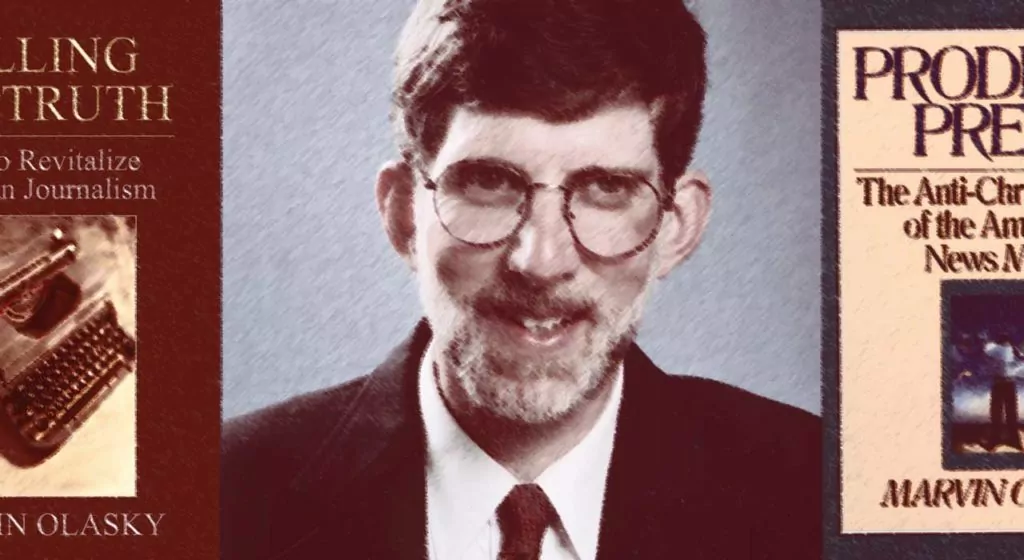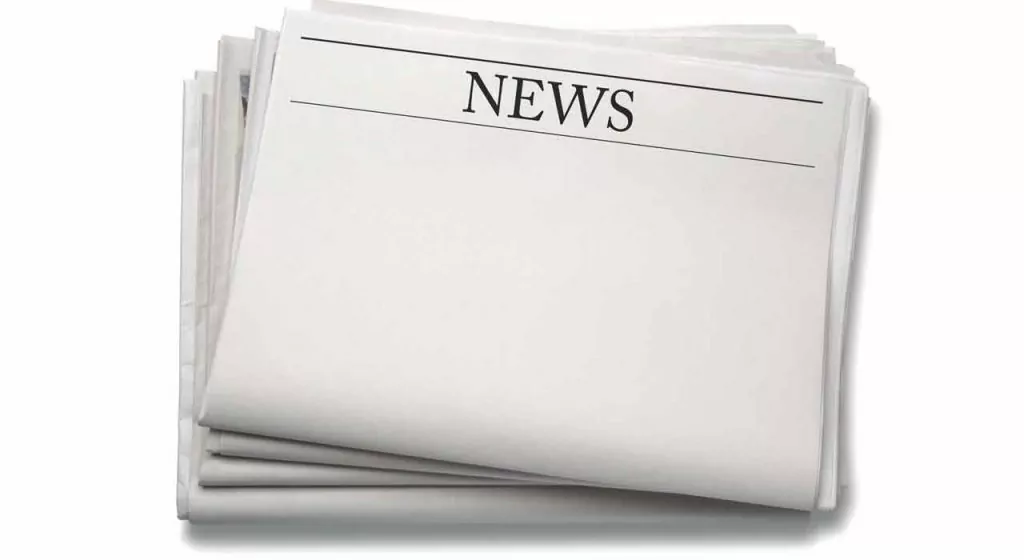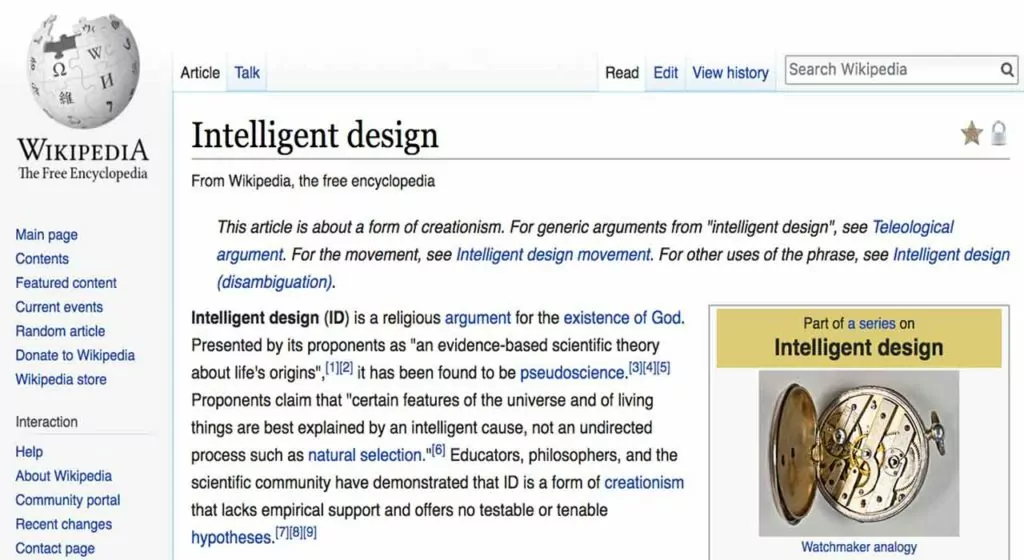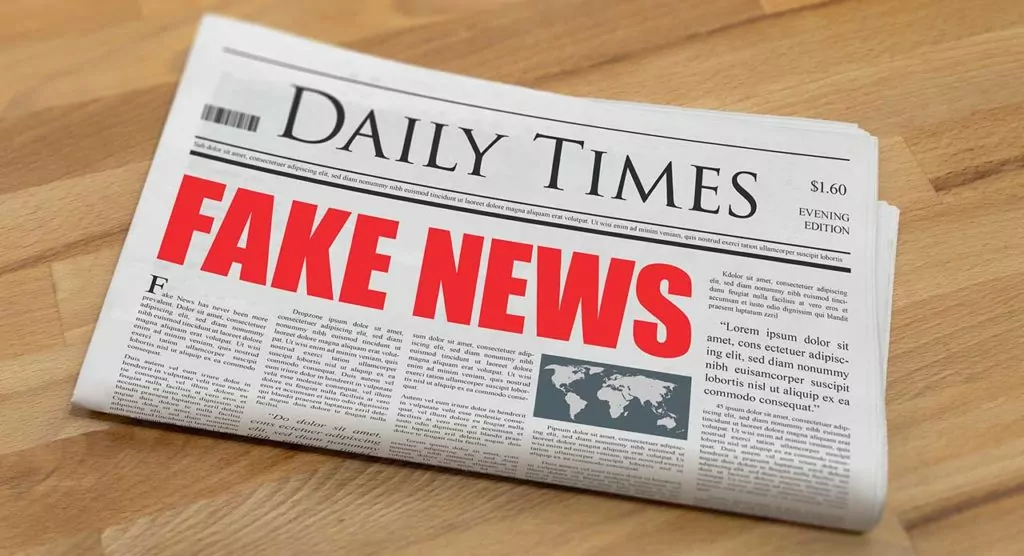Lies, Mistakes and Half-truths – 3 types of media bias
“People like you don’t deserve fair treatment!”
This wasn’t the sort of statement I expected from our local station’s 11 o’clock news anchor; on camera he seemed like such a nice man. But now that I had him on the phone he was using an obscenity every second word.
I phoned him to correct a notable but seemingly accidental mistake in the station’s political coverage. It turned out, though, that no correction would be made because, as this news anchor explained it to me, he had a gay sister, and he didn’t like my political party’s stance against entrenching homosexuality in Canada's Charter of Rights.
So he intentionally lied about us on air.
1. Blatant/Intentional lies
This type of blatant media bias used to be the rarest kind. Yes, there were always members of the media, like this evening news anchor, who would lie boldly and baldly. But as recently as ten years ago, this type of media bias was relatively rare.
Today, though, there are plenty of "fake news" sites that just don't care about the truth. Their goal is to draw in readers any way they can. Since very few of us are going to click on headlines about aliens or Elvis sightings, these sites craft headlines that are outrageous yet plausible. They give us stories like "Justin Trudeau Sets Legal Age for Smoking Marijuana to 24 Years Old" and "Fireman Suspended & Jailed by Atheist Mayor for Praying at Scene." Neither is hard to believe. But neither has actually happened.
To make it even more confusing, some of these fake news outlets mimic real news sites. A careful reader at ABCNews.com.co will be able to tell it is a parody site, but their domain name is meant to deceive the less discerning into thinking this is the mainstream media outlet ABC News (whose website is ABCNews.com).
So if you're reading an article from a news site that doesn't seem quite right, or the site is one you've never heard of before, you have every reason to be cautious, and even suspicious. Do a google search or check it out on Snopes.com (though they have their own decided bias); find out of they are real or fake before passing anything on.
While fake news abounds, among the established media – news outlets that have been around for at least a few years – most reporters do care about the facts. They have to, because they'll only have readers and viewers so long as they are credible. That's why even the media outlets that have the strongest anti-Christian bias can still – for the most part – be trusted on what facts they present. They might be highly selective about what facts they share, but they almost never just make stuff up.
2. Half-truths
And that brings us to a more common sort of bias, where the media lets their worldview dictate what facts they pass along. "Worldview bias" can be intentional, or entirely inadvertent, and it is everywhere. All reporters have their biases, so even when they are trying to be fair and balanced their biases still come out. In fact, as conservative news icon Ted Byfield once noted, it is impossible to cover all sides of a news event because there simply isn’t enough ink in the world. Reporters by necessity must pick and choose the facts they report and their worldview may cause them not to pursue, or even consider, some critical facts that may put an entirely different slant on a story.
Let me illustrate by way of a fictitious example. Below are two very different accounts that could have been written about the very same event.
Reverse Discrimination Alleged
Allegations of reverse discrimination are being leveled against Jim Brooner, the credit manager at the Acme Company store in Fort Keg River. Chris Hamson, a mine worker, claims that Brooner grants almost every native a store credit card but refuses more than half the whites who apply.
“I got refused about a month ago,” Hamson told the Gazette, “and then I found out a couple of my buddies at the mine were refused too. Then we started asking around and it turned out that while all the native guys had one, only a few of the white guys at the site had gotten a card. There’s only one explanation, that Brooner guy is racist.”
Racism Alleged
Allegations of racism are being leveled against Jim Brooner, the credit manager at the Acme Company store in Fort Keg River. A lawyer for the Entartee Band says Brooner regularly grants much higher credit limits to whites who apply for a store credit card than Natives applying for the same card.
“Some of the band members complained to the chief about this a few months back,” said band lawyer Joe YellowHorse, “so he asked me to look into it. I’ve been asking around and it’s true. This guy starts us at $500 or maybe $1000 credit limits, but every white guy who gets a card starts with at least a $2000 limit. Brooner is clearly racist.”
In both articles the facts seem to show that Jim Brooner is a racist, but in the first article he comes off as an anti-white racist and in the second he comes off as an anti-native racist.
In both cases the reporters got their facts right. Everything stated is true - but neither reporter managed to get the whole story. Jim Brooner isn’t racist – not at all. The store he worked at was located next to a northern native reserve. The whites in this part of the world were all imported from further south where most already had a credit history established. So when these whites applied for credit, if they had a good credit history, they were started off at a high limit, but those with bad credit didn’t get a card at all. The natives, for the most part, didn’t have any credit history yet, so almost all of them got a card, but with a lower limit, as you would expect for someone just building up their credit.
There was clear bias in these two stories, though both contained only the facts…just not all the facts.
Media outlets are going to be most attuned to, and more interested in, the facts that fit their own worldview, which means a CBC reporter would be more likely to come out with the second story, and a more conservative outlet, like maybe The Rebel Media, would be more likely to uncover the first. That's why, to get the full story, we need to read it from more than one perspective. As God tells us in Proverbs 18:17:
The one who states his case first seems right,
until the other comes and examines him.
Conservative media are friendlier to our side – they feature many more Christian, pro-life, and pro-family stories – but that doesn't mean they aren't biased. Everyone is. That's why, while I'm not a big fan of The Globe and Mail, if I read about something absolutely outrageous on, say LifeSiteNews.com, I might check the Globe to see how their take matches up. Anything on Fox News, or The Blaze, or the National Post, could be compared with the same story on MSNBC or The New York Times or Macleans. It would be too time consuming to do this with every news story, but on the important ones - a story big enough that you're thinking about passing it along via your social media feed - take the extra time to read about the event from a completely different perspective. Make sure you're sharing the truth - not a half-truth.
3. Systemic bias
The final type of bias is systemic – it is unavoidable bias that is part of the news business by its very nature. And this type of bias runs directly counter to the Christian worldview.
How so? News by its very nature has to be something unusual. So, for example, “Dog bites man” isn't newsworthy, while “Man bites dog” might make the front page. That’s why attacks on Christianity makes the news: “Atheist wants to be minister” is quirky and interesting, while the faithful work of your local pastor is too ordinary to ever get coverage.
This systemic bias in the media also works to normalize perversion – journalists can’t report on normal ordinary things (who would want to read about stuff like that?) so instead, they cover the strange and bizarre. But by covering it they start to make it less strange, and less unusual. Just think of homosexuality – 30 years ago it was shocking; today, after years of continual exposure, it is just another lifestyle. More recently we've seen euthanasia and transsexuality go from fringe ideas to rights, due in large part to ongoing coverage by the media.
The daily deadline pressure of the news business leads to another type of systemic bias. Reporters might be expected to write up to five stories a day on a range of topics they may know little or nothing about, so they have neither the time to dig for all the facts, nor the expertise to know what to look for. What they do instead is “attribution.” So when some scientists make claims about global warming, or overpopulation, or evolution, the reporter doesn’t have to find out if these scientists are correct – he merely has to attribute the claim to them. If the claim turns out to be untrue the scientists will be wrong, but the journalist will still have reported only the facts - that some scientists had made a particular claim. This “attribution” technique allows reporters to always tell the truth, even when they are passing on misleading or even deceptive information.
Conclusion
Many Christians base their political, cultural and economic opinions on the news they read while forgetting what the Bible tells us about how deceptive the Evil One can be. Reporters rarely lie outright, but many of these same reporters deny the truth of the Bible. Why should we expect the truth and nothing but the truth from reporters who can’t recognize the reality, accuracy and validity of the Bible? They may try their best to be fair, but even fairness only has meaning when it is rooted in God’s standards. They may claim to be unbiased, but God tells us there is no impartiality – you are either for Him or against Him.
Understanding the nature of media bias is more important today than it has ever been because with today's social media, all of us have become media outlets. Every one of us have dozens and even hundreds or thousands of readers, and each day we "publish" content for them.
So what sort of media outlet are you? Are you a trustworthy one?
If you are to be a light to the dark world – if you are going to be an ambassador for Christ – then in all that you share you need to be sure that you maintain your credibility. Christians need to known as truth-tellers, and not rumor mongers. We need to sure that what we share is the whole truth and nothing but it.
So be skeptical, be discerning, and be willing to check a story from multiple news sources, because bias is a part of every article you read.
A version of this article first appeared in the April 2005 issue of Reformed Perspective....
